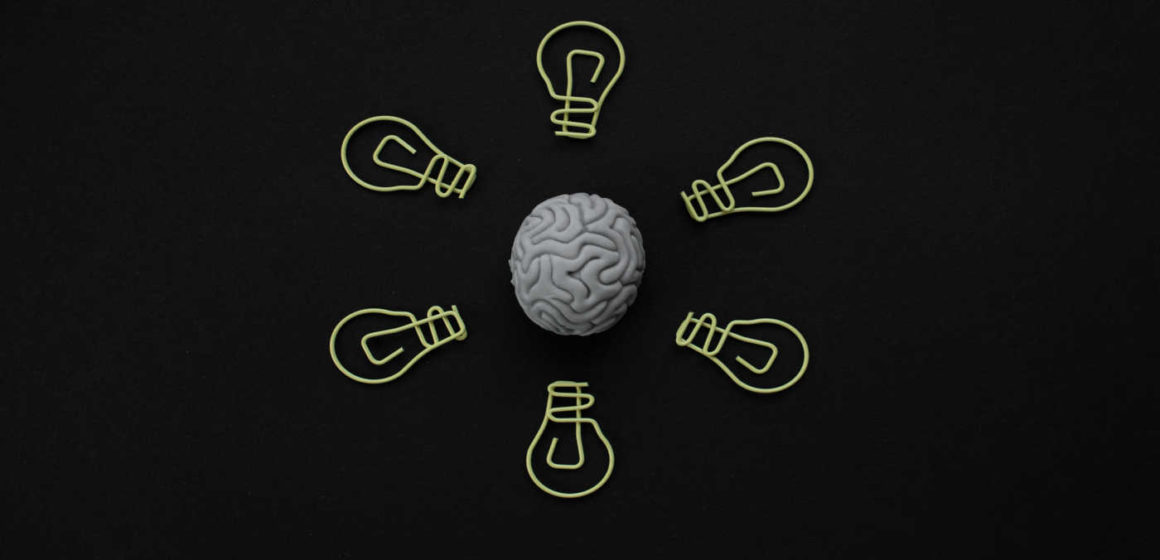Stop ANTs in Their Tracks: The Ultimate Guide to Conquering Automatic Negative Thoughts
Do you ever find yourself drowning in a sea of negative thoughts that impact your mood, relationships, and performance at work? Welcome to the world of Automatic Negative Thoughts (ANTs)—a common mental hiccup that almost everybody encounters.
These pesky ANTs can leave us feeling demotivated and overwhelmed; however, the good news is they can be conquered! In this blog post, we will delve into the concept of ANTs, explore their consequences on our lives, and most importantly—share some powerful strategies to help you rewire your brain for positivity.
Key Takeaways
- ANTs (Automatic Negative Thoughts) are involuntary negative thought patterns that impact our mood, behavior, and overall well-being. Understanding different types of ANTs, common triggers, and consequences of these thoughts can help individuals identify them when they occur.
- Challenging negative thinking patterns through cognitive restructuring techniques like examining evidence for and against the negative thought and reframing it into positive empowering thoughts or PETs is crucial in conquering ANTs.
- Utilizing mindfulness practices, positive self-talk with affirmations, visualization exercises, gratitude practices along with seeking professional help are powerful tools to reframe negative thoughts into positive ones leading to healthy coping strategies when dealing with stressors. By implementing these strategies consistently over time one can build resilience towards life’s challenges.
Understanding ANTs (Automatic Negative Thoughts)
ANTs (Automatic Negative Thoughts) are those negative thoughts that automatically pop into our minds without any conscious effort and can lead to cognitive distortions, anxiety, depression, and other mental health issues.
Definition And Types Of ANTs
Automatic Negative Thoughts, or ANTs, are involuntary thought patterns that contain pessimistic and self-defeating statements. These thoughts often emerge without our conscious awareness and can significantly impact our mood, behavior, and overall well-being.
For example, imagine you’re waiting for feedback on your latest project at work. An ANT may arise as a thought like “I’ll probably receive harsh criticism because I always mess up.” This type of thinking not only hinders personal growth but also reinforces unhelpful beliefs about oneself.
How ANTs Affect Our Thoughts And Behaviors
Our thoughts have a powerful impact on our emotions, behaviors, and overall well-being. ANTs (Automatic Negative Thoughts) can cloud our thinking and lead to negative self-talk, which ultimately affects how we view ourselves, others, and the world around us.
These types of thoughts often stem from cognitive distortions or inaccurate beliefs that we hold about ourselves or situations. For example, if you believe that your coworker didn’t say thank you because they don’t like you instead of considering other possible reasons for their behavior like being busy or distracted- this is an ANT.
Common Triggers For ANTs
There are several common triggers that can lead to the onset of ANTs. One is stress, which can cause negative thoughts to spiral out of control. When we’re under pressure or feeling overwhelmed, it’s easy for our minds to jump to worst-case scenarios and catastrophic thinking.
Another trigger is past experiences, particularly traumatic ones.
Other potential triggers include lack of sleep, low self-esteem, and certain mental health conditions like anxiety or depression. It’s important to recognize these triggers so that you can take steps to manage them when they arise.
This might involve practicing self-care techniques like exercise or relaxation exercises, seeking therapy or medication for underlying mental health issues, and learning how to challenge negative thoughts as they come up with cognitive behavioral therapy techniques.
The Consequences Of ANTs
ANTs can have serious consequences on our mental and physical health, causing us to experience anxiety, depression, and stress that may result in physical symptoms such as digestive issues or headaches.
Impact On Mental Health
ANTs can have a significant impact on our mental health, leading to anxiety and depression. When we consistently engage in negative self-talk, it creates a harmful cycle of destructive emotions that can make us feel trapped and hopeless.
Over time, this kind of negative thinking can lead to low self-esteem and distorted perspectives on life. It becomes harder to appreciate positive situations or events when you are focused solely on the negatives.
This is why it’s so crucial to learn how to challenge automatic negative thoughts.
Impact On Physical Health
ANTs can have a significant impact on physical health as well. Prolonged exposure to negative thinking patterns and stress can lead to chronic health problems such as cardiovascular disease, hypertension, digestive issues, headaches, and insomnia.
Furthermore, people who struggle with ANTs may also engage in unhealthy coping mechanisms such as overeating or substance abuse to self-medicate from their negative emotions.
This behavior only exacerbates the problem by causing more physical health issues down the line.
Impact On Relationships And Work Performance
The effects of ANTs on our relationships and work performance can be devastating. When we have negative thoughts, it affects the way we interact with others and can lead to strained relationships.
We may become easily frustrated or irritable, which could cause conflicts with coworkers, friends, or family members.
Additionally, automatic negative thoughts can impact our work performance by causing distractions and reducing our focus and productivity levels. Negative self-talk such as “I’m not good enough” or “I’ll never get this done” can make tasks seem more difficult than they actually are which hinders progress at work.
As a result of these thoughts either discomfort in social situations like networking events also affects overall employment prospects making career growth slow down significantly.
Identifying And Challenging ANTs
To conquer ANTs, it’s crucial to recognize negative thinking patterns and use cognitive restructuring techniques like challenging thoughts and reframing them into positive empowering thoughts.
Recognizing Negative Thinking Patterns
Negative thinking patterns are often automatic and can be difficult to identify. However, recognizing them is an important step in conquering ANTs. Some common negative thinking patterns include black-and-white thinking (seeing things as all good or all bad), catastrophizing (assuming the worst possible outcome), and personalization (blaming oneself for things that are not their fault).
For example, if someone had a presentation at work and it did not go perfectly, they may automatically think “I am such a failure” due to the personalization pattern. They could instead challenge this thought by asking themselves if it is truly accurate or helpful.
Using Cognitive Restructuring Techniques
One effective strategy for conquering ANTs is using cognitive restructuring techniques. This approach involves challenging negative thoughts and replacing them with more positive, realistic ones.
Another technique is to examine evidence that supports or refutes the automatic negative thought. For instance, if someone thinks “no one likes me,” they can ask themselves if this belief holds up when they consider their relationships with loved ones who have indicated otherwise.
Utilizing Positive Self-talk And Mindfulness
Positive self-talk and mindfulness are powerful tools for conquering ANTs. Positive self-talk involves creating an inner dialogue that focuses on empowering, affirming thoughts.
For example, instead of thinking “I’m never going to succeed,” try saying to yourself, “I am capable and determined to achieve my goals.” Mindfulness is the practice of being present in the moment without judgment or distraction.
This can help you become more aware of your negative thoughts and recognize when they are triggering ANTs.
One technique that combines positive self-talk and mindfulness is cognitive restructuring. This involves challenging negative thought patterns by examining evidence for and against them, as well as exploring alternative perspectives that may be more realistic or helpful.
Turning ANTs Into PETs (Positive Empowering Thoughts)
This section will provide practical strategies for reframing negative thoughts and cultivating a more positive mindset, including techniques like gratitude practices, visualization exercises, and seeking professional help when needed.
Reframing Negative Thoughts And Finding The Silver Lining
One effective technique for conquering ANTs is to reframe negative thoughts and find the silver lining. This involves looking at a situation from a different perspective, one that focuses on positive outcomes rather than negative ones.
Finding the silver lining in difficult situations helps build resilience and can lead to more positive thinking patterns overall. By consciously shifting our focus towards positive aspects, we begin training our mind to automatically gravitate towards optimistic thinking.
Cultivating A Positive Mindset With Gratitude Practices And Visualization Exercises
Cultivating a positive mindset can be challenging, especially when surrounded by negative thoughts. However, practicing gratitude and visualization exercises is an effective way to shift our focus towards positivity.
Gratitude allows us to appreciate the good things in our lives, no matter how small they may seem.
Visualization exercises involve imagining ourselves achieving our goals and living the life we desire. This helps us create a positive outlook on the future and motivates us to take action towards achieving those goals.
For instance, if your goal is to become more confident at work, you can visualize yourself speaking confidently during meetings or presentations.
Seeking Professional Help When Needed
It’s important to know that seeking professional help for ANTs is a valid and effective form of treatment. For some individuals, the methods outlined above may not be enough to conquer their negative thinking patterns.
Seeking help from a mental health professional who specializes in cognitive behavioral therapy (CBT), for example, can provide additional support and guidance on how to effectively challenge and reframe negative thoughts.
Additionally, medication may also be prescribed when necessary to manage underlying chemical imbalances in the brain that contribute to negative thinking patterns.
Tips For Maintaining A Positive Mindset
– Surround yourself with positivity by spending time with supportive people and avoiding negative influences.
– Deepen your social connections through activities that foster meaningful relationships such as volunteering or joining a club.
– Engage in activities that bring you joy, whether it’s exercise, hobbies, or simply taking some time to relax and unwind.
– Prioritize self-care by getting enough sleep, eating well, and engaging in practices that promote mindfulness and stress reduction like yoga or meditation.
– Practice reframing negative thoughts into positive ones regularly using techniques like gratitude journaling or visualization exercises.
– Remember that seeking professional help is always an option when struggling with ANTs or other mental health concerns.
Surrounding Yourself With Positivity
To maintain a positive mindset, it’s essential to surround yourself with positivity. Spending time with supportive friends and family who uplift you and make you feel good about yourself can significantly impact your mental health.
In addition to social connections and enjoyable activities, being mindful of the media you consume is crucial. Limiting exposure to negative news or social media content that triggers ANTs can help prevent spiraling into negative thoughts.
Surrounding yourself with uplifting music, books, movies, or TV shows can also provide a much-needed break from daily stressors and nurture positivity in your life.
Deepening Social Connections
Deepening social connections is an important way to combat ANTs. Humans are social creatures, and studies have shown that people with stronger social ties tend to be happier and healthier.
Building strong relationships takes effort, but it’s worth it in the long run.
Social media can also play a role in connecting people, but it’s important to ensure that interactions on these platforms don’t lead to more negative thoughts or cause comparisons with other people’s highlight reels.
Instead, focus on building genuine relationships through shared experiences and conversations. When you’re feeling down, confiding in someone who understands your situation can help lift your mood and provide much-needed support.
Engaging In Activities That Bring Joy
It’s important to engage in activities that bring you joy as a way to combat ANTs. Think about what makes you happy and incorporate those activities into your daily routine.
It could be as simple as going for a walk outdoors, listening to music, playing with your pet, or trying out a new hobby.
For example, if you love painting but haven’t picked up a brush in years due to work or family obligations, try setting aside some time each week dedicated solely to painting.
Not only will this help improve your mood and reduce stress levels, but it can also lead to an increased sense of accomplishment and self-worth when finishing a project.
The Importance Of Self-care
Self-care is a crucial component when it comes to conquering ANTs. This involves prioritizing your own well-being and taking time for yourself, both physically and mentally.
It can be as simple as getting enough sleep, eating nutritious foods, or engaging in regular exercise.
Taking care of oneself allows you to better manage stressors and build resilience against negative thinking patterns. Self-care also means setting boundaries and saying “no” when necessary to protect your own mental health.
Conclusion And Key Takeaways
In conclusion, ANTs or automatic negative thoughts are harmful and can have a significant impact on our mental and physical health, relationships, and work performance. Identifying and challenging these negative thoughts is crucial for our emotional well-being.
By reframing negative thinking patterns and cultivating a positive mindset with gratitude practices and visualization exercises, we can prevent the recurrence of ANTs. Seeking professional help could also be beneficial in some cases.
FAQs:
- What are ANTs (Automatic Negative Thoughts) and how do they impact mental health?
ANTs refer to a type of automatic thinking pattern characterized by negative self-talk, pessimistic attitudes or beliefs that can often lead to depression, anxiety or other mood disorders if not addressed properly. Recognizing and changing these patterns can have a positive impact on mental wellbeing.
- How do I identify ANTs in my thought process?
The first step in identifying ANTs is becoming more aware of your own thinking patterns through techniques such as mindfulness, journaling or therapy with licensed professionals who specialize in Cognitive Behavioral Therapy (CBT). This helps individuals pinpoint the specific types of negative thoughts that might be impacting their behavior.
- What are some effective strategies for overcoming ANTs?
Some strategies for overcoming ANTs include cognitive restructuring – where one replaces negative thoughts with more positive/realistic ones – using affirmations to interrupt destructive thought processes and engaging in activities like exercise which promote healthier emotional states overall.
- Can meditation help conquer ANTs?
Meditation has been shown to decrease symptoms associated with anxiety and depression while improving focus/concentration thus it may be beneficial when trying manage and conquer ANT’s impacts over time; however there is no quick fix solution one fits all approach so exploring different techniques tailored towards individual needs could generate best results possible through regular practice overtime.
Sources
https://pubmed.ncbi.nlm.nih.gov/26431418/
https://www.theguardian.com/lifeandstyle/2014/aug/11/how-to-silence-negative-thinking
https://www.inc.com/chris-winfield/is-stomping-ants-the-key-to-living-a-happier-life.html
https://www.huffpost.com/entry/how-to-stop-automatic-negative-thoughts_b_58330f18e4b0eaa5f14d4833

Dr. O “TheTeenDoc.” helps clinicians communicate better with their teen patients. She speaks, blogs www.TheTeenDoc.com, researches and consults on communicating with teens. She has written two e-books for parents and teens on communicating about the challenging subject of sexual health. You know, teens that bring chief complaints of belly pain, social crisis, emotional turmoil and obnoxious parents. Or, is it the parents with obnoxious teens? Sometimes she mixes that complaint up.
Dr. O speaks www.TheTeenDoc.com to and is consulted by clinicians who want advice managing difficult teen and teen-parent situations. These situations frustrate clinicians and slow down their clinics making them wonder if they’ll ever walk out the door for the day. Every day, in her own practice, Dr. O helps clinicians communicate better with teens and helping you is another level of reward. Her talks are fun and informative, and her delivery empowers clinicians to actually think teens are an awesome group to work with. Her energy about teens is contagious and has inspired her coaching clients to have less fear and more confidence with the teens in their panel. Her dedication to seeing you succeed with a group she is so passionate about is what makes Dr. O’s Lounge the place you want to be!
If you are a clinician that has teen’s in your practice, from pediatrics to internal medicine, the person with whom you need to connect is Dr. O “TheTeenDoc!” You can listen to a complimentary audio “The Art of Teen Medicine” and recommend her e-book “Are You Serious? It’s Just Sex!” to your patients. And while you’re there, become part of Dr.O’s Lounge.
Specialties: consulting, coaching, counseling, mental health, research, seminars, spanish, public speaker, teaching, communications between teens and adults



